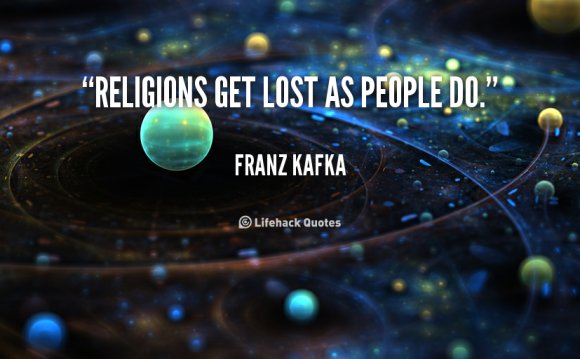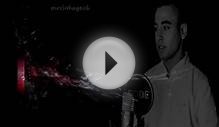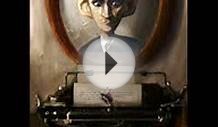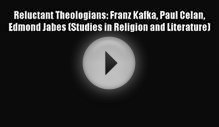
Henry R. Wardlaw
To write an item about Franz Kafka for a record that will be concerned with developing a connection between Christians and Jews straight away invites questions regarding Kafka"s reference to these two practices of faith. Its obvious that Kafka was not a Christian. Their relation to the Jewish tradition of trust is pretty harder. Their youth and adolescence had been overshadowed by an over-bearing parent and his relationship to their daddy stayed an unresolved stress through most of his short life. As an adult man in his mid-thirties he penned a letter to his daddy in which he provides a quite step-by-step account for this challenge. The page had been never ever provided for the father, nonetheless it does attempt an analysis of this insufficient comprehension between them.
Inside the essay on Moses and Monotheism Sigmund Freud talks of Judaism as a faith of parent. Of Christianity he claims that having started as a religion for the Father it eventually becomes a religion associated with the boy. In every of this Freud views the father-son relationship as somehow standing behind those two spiritual traditions and Franz Kafka"s writing might be taken as a demonstration with this movement through the issue of patriarchal authority to issues of ethical and spiritual expert. We would observe in passing here the conditions that became main in more recent theological conversations associated with restricting and distorting nature for this solely male perspective will never be raised by Kafka, perhaps because his own personal knowledge gives the powerful of such that he writes.
In many ways i believe we would say the stress which obviously existed between him along with his daddy ended up being a really powerful formative impact lying behind his most powerful writing. This may seem to suggest that their writing arose out-of some type of aspire to justify himself into the eyes of his dad and on occasion even when you look at the eyes of his visitors. but that might be to misrepresent the problem.
Kafka had not been mainly concerned either with justifying himself or with condemning his dad, he's just wanting to lay out their own comprehension of the partnership also to suggest a number of the impacts that his parent"s behaviour could have had upon him.
He was certainly not trying to make any last judgement about who was to be culpable for the tension among them. He was just wanting to understand it. In fact Kafka had been really reluctant to make judgements or even apportion fault in just about any man relationship. He when
remarked that human beings cannot truly make judgements about human affairs. To stay in a posture to judge you would need to be standing beyond your circumstance, yet becoming outside the situation means you're in no position to create a judgement. In this i do believe he's truly at one with specific Jewish thinkers, included in this Jesus of Nazareth, though, unfortunately, it is something that Christians and perhaps Jews also, have already been unready to acknowledge.
Yet Judgement remains a pervading theme through all that Kafka writes. In 1912 he penned a tale that he really entitled Das Urteil (The Judgement). It absolutely was one of the few things he had written with which he felt truly pleased and then he had no doubt in having it published.
It's a strange story which centres on a quarrel between a young businessman, Georg Bendemann, and his daddy. The story starts with younger Bendemann having only completed a letter to a buddy from his last who's got moved away and everyday lives now in Russia. The buddy has-been quite unsuccessful running a business affairs; nor has actually he discovered a partner in marriage. The relationship amongst the two happens to be close, however in the letters Bendemann has never told the buddy towards undeniable fact that he's got become involved to a girl of good family, whom he is soon expected to get married. This failure to inform such a seemingly good friend something that is actually of good importance in his life appears strange to his fiancee and his dad regards it as merely wrong-headed. Today, eventually, he's got written a letter where the development is broken in which he goes to inform his parent of the page that has been written.
The encounter between dad and son after that develops into an extremely intense argument, throughout that your dad goes through a change from being an impotent old-man who submits to being tucked up in bed by their boy into a gigantic figure, just who finally rises up in the bed and pronounces judgement on his boy, who he condemns to death by drowning.
Reading this phrase of demise pronounced, the child hurries out of our home, through the crowded streets to a bridge over the lake and leaps through the connection, murmuring "Dear parents, i did so constantly love you" as he falls to their death.
It's clear that tale is some sort of parable (Kafka himself as soon as described it as "more of a poem than a story"), but the way the parable or poem should really be translated is far from obvious. Kafka made a few attempts to interpret it but he respected that his remarks by no means fatigued the ramifications of exactly what he previously written.
There have been needless to say autobiographical links. He did reside in stress together with parent and it is most likely there had been some feeling of judgement involved with that relationship. Furthermore during composing the storyline he'd himself entered into a relationship that led on to their getting involved. The tale wasn't just a dramatic representation of his very own circumstance. To express it was would be to approach it as a piece of realist story-telling which it is not. It starts like a straight-forward narrative but down the road it will require just what may be known as a surrealist turn beyond the sphere of realism completely. Indeed it will require on some thing associated with quality of a myth, that will be interacting something of Kafka"s fundamental knowledge of individual presence therefore the main place that becoming brought to judgement occupies in our resides.
It's interesting to place Kafka"s story alongside more directly autobiographical representation for the Scottish theologian John Baillie who was simply a modern of Kafka. Baillie informs us that he cannot bear in mind a period when his life appeared to be his very own related to while he pleased. "I happened to be under purchases and it also ended up being from my father or my mom or my nurse that the purchases came." But Baillie never ever asked the expert of the which gave the sales. "For we never ever expected that it was just a case of my father"s will or my mama"s will pitted against my might; nonetheless less their energy pitted against my weakness."
For Baillie parental authority is regarded as that belong within an arena of moral constraint which provided purchase to life by recommending proper frameworks of duty and lines of conformity of by themselves become justified in terms of wider perceptions of justice. Because of its...
RELATED VIDEO












